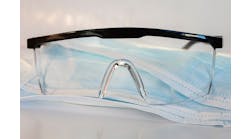Last month, we became first-time grandparents when my son and daughter-in-law gave birth to identical twin boys. Bringing two new precious lives into the world is nothing short of miraculous and inspiring. It also makes me think about what the future may hold for these two newborns and their parents.
My son works in the auto body industry as the general manager of a very large shop in Southern California. So, thinking about the future for this new family naturally leads to thoughts about the future of the body shop business. It is very clear that we are in a state of disruption in our industry, but I’m wondering how much disruption is actual reality and how much is hype.
Let’s talk about some of things we are hearing and compare them to facts and probabilities. Some of these predictions might resonate with you and some you may have already dismissed as improbable. Either way, let’s have a little fun and dig a little deeper into a few predictions I’ve read or heard recently.
“A baby of today will only see personal cars in museums. The very young children of today will never get a driver's license and will never own a car.”
Let’s see what some actual independent research from AAA says about this prediction: “Ride-hailing services are a popular and convenient transportation option, but a new AAA analysis shows they are not a cost-effective replacement for vehicle ownership. According to the AAA Foundation for Traffic Safety, the average driver in an urban area drives 10,841 miles per year. While urban drivers travel fewer miles than those living in smaller towns or rural areas, relying on ride-hailing services as a primary mode of transportation would cost $20,118 annually. This equates to more than twice the cost of owning a personal vehicle, even when factoring in the expense of fuel, insurance, parking and the vehicle itself.”
At this time, autonomous vehicle testing on public roads has really scaled back since the fatality in Arizona involving an autonomous Uber vehicle. When will these vehicles be available in urban areas as a viable transportation option? Probably only when they can be proven to be safer than human drivers and that is a pretty tall order. Sadly, in the U.S., last year there were about 37,000 deaths on the road. Research shows that Americans drove over 3.2 trillion miles last year, which equates to 90 million miles being driven for each motor vehicle fatality. When autonomous vehicles can be driven 24/7 for over 300 years without causing a fatality, maybe then the American public will actually believe they are safer than vehicles piloted by human drivers. Until then it will be a while before this mode of transportation is fully embraced.
“Auto repair shops and dealer service centers will go away. A gasoline engine has 20,000 individual parts. An electrical motor has 20. Electric cars are sold with lifetime guarantees and are only repaired by dealers. It takes only 10 minutes to remove and replace an electric motor. Faulty electric motors are not repaired in the dealership but are sent to a regional repair shop that repairs them with robots.”
It is a certainty that electric vehicles will become the predominant transportation choice for consumers. Volvo announced that it will only produce hybrid and electric vehicles beginning in 2019 and plans to only produce EVs by 2030. Many other manufacturers are following suit for economic, environmental and CAFE Standards reasons. I don’t think internal combustion engines (ICE) are going to completely go away. Too many people love their Mustangs, Camaros, Challengers, and other high-performance models. I work on a lot of Teslas and they are really fast, and fun to drive. I also know there’s no way my factory-trained techs could change out a Tesla motor in 20 minutes.
Google let me down when I tried to find out how many parts there are in a conventional internal combustion engine, but it is obvious that the electric motor is simpler and has a lower part content. Does this mean the dealership service centers won’t have anything to do in the future? Here is what Wes Lutz, the chairman of the National Auto Dealers Association told the Automotive Press Association last month regarding the notion that dealers are holding up the move to electric vehicles:
"I want to sell anything my customers want to buy. Period. In fact, there is nothing I would want to do more than sell every American a new electric vehicle."
Aside from selling new vehicles, Lutz said it's still in a dealer's financial interest to sell EVs, challenging the accusation that auto dealers won't make money on servicing them.
He said most of his service revenue comes from tires, brakes, suspensions, alignments and electrical systems––all of which EVs have.
Hmmm, sounds like dealerships aren’t too worried about the future relative to impending escalation of EV sales.





